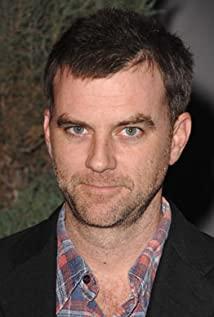After reading it the second time, you can understand many of the details. This movie suits my taste very well, although I don't think it is the best of PTA. I also don't think this is a weird and incomprehensible movie. On the contrary, it may be the most close to ordinary people's life, the most warmth and the easiest to understand among all PTA movies. PTA's other works involve very grand themes, whether it is "Magnolia", which tells the religious salvation in daily painful life, or "The Bloody Coming", which shows the successful desire of pioneers in the western world, there is a gap between them and religious experience. For domestic audiences, it is easier to show the suspicion of making mysteries. If you watch "Sexual Evil" with more complicated plot clues and stronger social criticism of the theme, you can understand why this movie is just a small attempt by the director. This film basically only tells the story of one person from beginning to end, so the audience can easily follow the development of the plot. On this basis, if you want to work hard on the script, you must have extraordinary talents in embedding details.
The male protagonist in the film is a typical social disorder. Many of the details reveal his introverted, autistic, and even a little schizophrenic character: he likes to be alone in a dark place, and he is very frightened when he encounters light; when he first saw the heroine His eyes were erratic and blurred. When the hostess looked back at him, he unconsciously avoided her gaze; he was not good at words, and felt that he was isolated in the family and then angrily punched the glass wall to vent. Because of his emptiness and loneliness, he pinned his life-changing hope on a sex call. He also believes that the promotional advertisements in the newspaper outperform his own sister. He has unrealistic fantasies. He hasn't taken a plane before, and he wants to buy a lifetime flight ticket by playing tricks. He is often so disappointed that he can't lift his head in front of others, habitually crying, and can only cover his face in front of others to avoid him; sometimes he is very easy to get overwhelmed, and when he buys cookies in the supermarket, he ignores his colleagues' hard work. I danced on the sidelines. He is extremely insensitive to changes in the surrounding environment. Not only will he lose his way in the hotel, but he will suddenly hit a glass door while walking in the office. In addition to dealing with the necessary work with his colleagues, he does not care about the situation in the garage next door. These somewhat embarrassing and even embarrassing situations appeared one after another in his life. In the end, it would be strange that his life did not become the scene of a car accident.
More interesting details are hidden in his language. As a person who is not good at normal communication, what he says often comes from the unconscious. For example, when his brother-in-law at the party asked him about his job, he spit out a strange expression like "business's very full", and then his brother-in-law helped him to correct it, and systematically analyzed that it might be because of his subconscious mind. He wanted to have a full dinner before uttering the word full. Also, when he quoted Confucius's famous words in front of the hostess, he referred to Confucius as confusion. Of course, the most dumbfounding scene happened on the night he made a sex call. He wanted to conceal his real name from the operator and deliberately changed Barry to Jack, but then when the call girl called, he even confused himself as Beck, which made me almost laughing. This is really a movie very suitable for analysis by psychoanalysis. With so many verbal errors, it would be wonderful if someone could use Lacan's terminology to analyze them. Of course, his intermittent violent venting behavior can also be explained by using Freud's point of view. For example, his animal self often destroys the rule of the ego and the superego with overflowing libido. The huge desire for destruction lurking under his weak skin may also be related to some of the trauma he suffered in his early years. Pulling away.
So what is the real problem of the male protagonist in summary? He had already said to his brother-in-law at the beginning, first, he didn't understand himself, second, he didn't understand others, and third naturally, he just didn't like himself. Because he didn't know himself, he would often talk to himself, muttering byebye repeatedly in the hotel corridor after leaving the hostess (then he said fucking ironically, as if two people were talking). Because he doesn't like himself and feels that what happened to him is always inexplicable, he will talk about fuck it while talking about byebye, and express his dissatisfaction with himself in a self-conscious manner. Of course, his fatal blind spot is his lack of understanding, distrust, or reckless trust in others. We see that every time he talks with his sister, one of the five sentences is a lie. If the number of people telling lies is proportional to the gap between the inner fragility of the two sides of the conversation, then Barry's inner fragility is extremely fragile.
The more you get to this dilemma, the more you can see how valuable his sister has helped him. I think that the luckiest thing for the male protagonist is not the last to meet Emily Watson, a kind, tolerant, and healing sister to end her bad life. After all, this encounter is with the organ that stands at the door. The same is a small probability event; but among the seven sisters, there is one Elizabeth who is truly considerate of him, takes care of his feelings, and does not ridicule and curse him with everyone. Elizabeth stood up to so many lies he told, insisting on finding a better life for him. Elizabeth was able to guess that Barry could not go to the party because it was a lie to redeem the gym qualification certificate, but could not guess that Barry finally asked for the phone number of the Hawaii hotel to indicate that things had actually improved, so she had to call Linna with anxiety and then to her. Apologize and beg for forgiveness for his brother. So there is the most moving scene in this movie: in the morning in the Hawaii hotel, Linna tells Elizabeth on the other side of the phone a lie with a little bit of arrogance, but actually has no negative influence on things, and Barry, lying on the bed, finally smiled confidently. He seemed to be secretly delighted, one day the initiative of the lie finally took control of his own side. A few days later, he fought back at the mattress king who made the sex phone and made sure that Linna would not be harmed anymore. In this way, he finally stopped the last lie he might tell, healed all his heart diseases, and the story came to a successful conclusion.
After watching the movie, I watched the PTA interview again. I found that PTA turned out to be a very peaceful, honest, and friendly person (of course, he does not lack the sharp eyes of an artist), and the sex that often appears in his movies. The scenes of violence and violence do not seem to belong to the same style of painting. But thinking about it a little bit, the truth is not difficult to understand. It is precisely because of a very deep reflection on sex and violence that the causes and consequences of both have been analyzed by a psychiatrist, so that we can have this kind and frankness. This insistence on not romanticizing violence and pure sexuality requires commercial films to learn. At the same time, this film can also see that his control of the plot is still very good. The style of the movie as a whole is neat realism. Of course, very few places will add some fantasy symbolic elements (this is a major feature of PTA movies). One is the organ added in the film that does not promote the plot. The other is when the hero and heroine met and hugged in the lobby of the Hawaii Hotel, a crowd of passersby suddenly appeared in the background and finally disappeared quickly. These fantasy elements have arrived at PTA, and there are some religious beliefs, as if they are a sign of salvation. The theme of salvation is no longer unfamiliar in post-modern novels and movies. In the attempt to shoot this movie, PTA ended up using mass media, supermarket consumer culture, marketing fraud, remote pornography, autism, and In the postmodern ruins where schizophrenia is a typical component, a monument of faith is found in love.
View more about Punch-Drunk Love reviews











